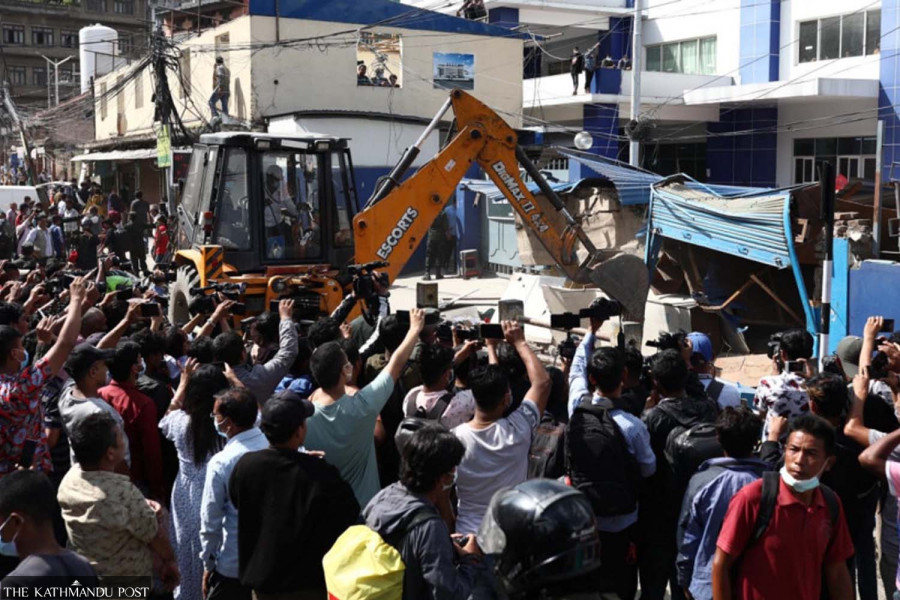Editorial
Ditch the hammer, Balen
The goal is to balance the interests of those involved in these informal trade with pedestrian comfort.
The Kathmandu Metropolitan City has been aggressively pursuing a drive to remove roadside businesses and street vendors. Managing road traffic and walkways in a city that packs in over a million people is definitely a daunting task, and it is upon the municipality to make the city livable and navigable. This is why the clean-up initiatives of the new mayor of Kathmandu city Balendra Shah were initially applauded. But some of his recent actions have also come under withering criticism. The municipality was widely criticised for the way municipal police terrorised roadside businesses. The goods of many were seized and the sellers chased away. The heart-rending photos and images of a wailing Sharmila Tamang, a roadside vendor whose cart had been seized by the city police, became emblematic of this mayoral drive. Inadvertently, many who had pinned high hopes on Shah to better manage Kathmandu now started doubting his intent. How could he be so cruel, they asked?
As Tihar kicked off, it was the turn of the flower sellers by the roadside to be chased away. Many of these sellers wait for Tihar for the whole year so that they can make enough to tide over the rest of the year. Again, there is no doubt that our walkways and footpaths should be better managed. But this must be done as a part of a well thought-out plan, not on an ad hoc basis. For instance, the municipal authorities could have given the roadside vendors some time to find alternative sites of business; the municipality itself could have arranged for such sites. Even if doing so is not always possible, it is vital that people’s chosen representatives follow due process while implementing their vision. If Shah wants to make the walkways in the city more pedestrian-friendly, the first thing to do would be to consult all stakeholders, especially those who will be directly affected. That is how things are done in a democracy. It is unbecoming of democratically elected representatives to act like autocrats who feel they have carte blanche to do pretty much as they please. Yes, that is the kind of perception Shah is slowly building—in under six months into his tenure.
It is also myopic to apply a single lens to the issue of pedestrian comfort. Many people who are looking to celebrate Tihar rely on the roadside businesses to provide them garlands and other puja materials at reasonable prices. There is also a kind of vibrancy to the Tihar-time roadside markets. The issue of proper management of roadside vendors is not unique to Nepal. Most sizable urban spaces are facing such problems—and only a few of them have banned roadside businesses outright. The goal is rather to balance the interests of those involved in these informal trade who make sustenance-level income with the comfort of the pedestrians. It’s said that if the only tool you have is a hammer, you tend to see every problem as a nail. Someone with Balan Shah’s education background and public backing must be more creative than that.




 13.12°C Kathmandu
13.12°C Kathmandu














